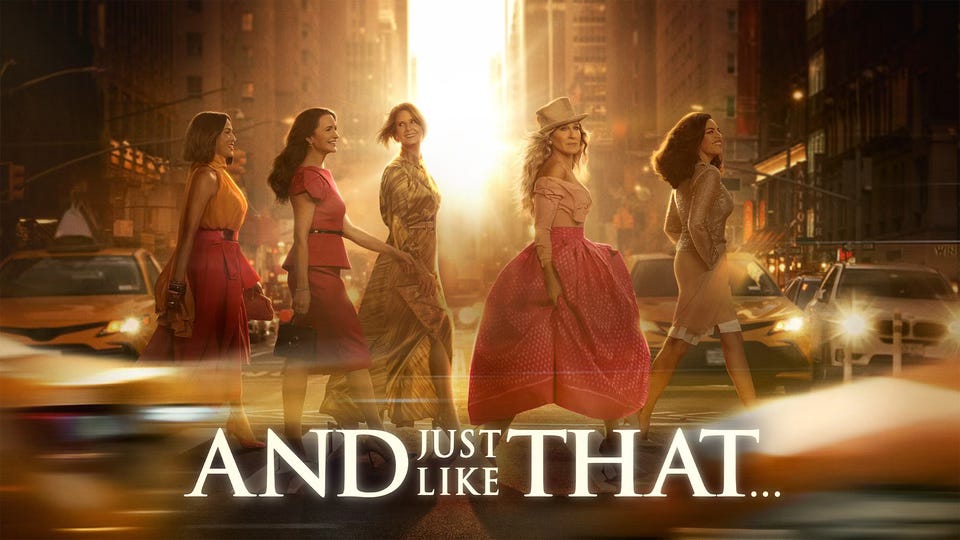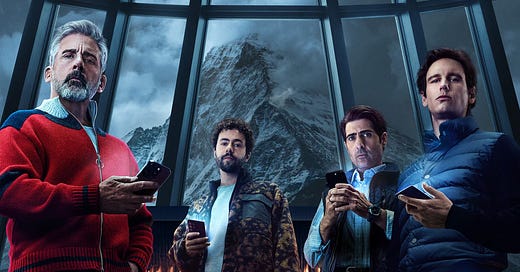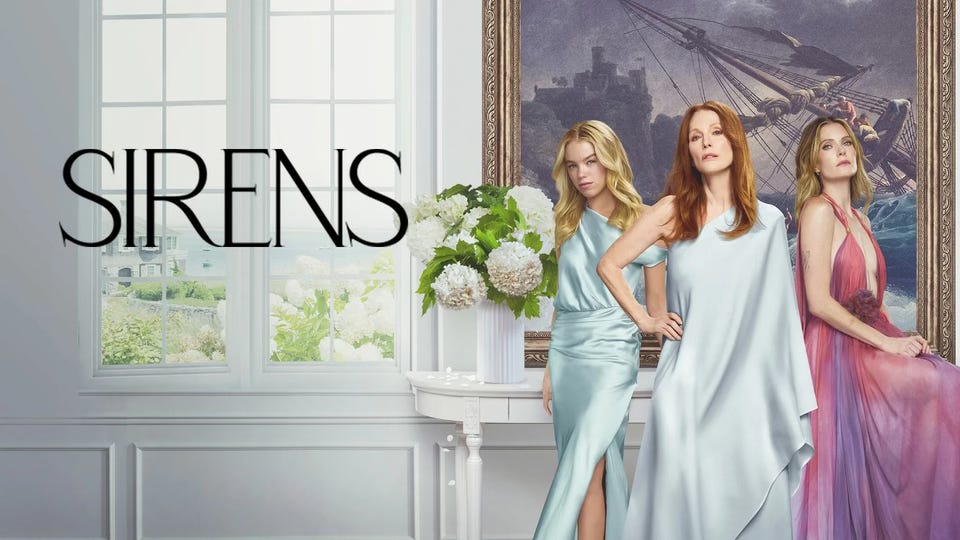I’ve been thinking a lot about the media I consume as of late. It started post-election, after Kamala was defeated, and the promises of that joyous brat summer seemingly evaporated overnight. But it wasn’t the Trump regime and their desire to thread false narratives into every aspect of our lives that rocked me. No, it was one simple news story that I can’t stop thinking about. The news report stated that roughly 54% of Americans read below a sixth-grade level and that of this 54%, almost all of them consume their news via social media.
Perhaps that statistic is shocking to you. Perhaps you’ve heard it multiple times over since the election. Perhaps you don’t care. But however it lands with you, I think what most reporting on the findings failed to examine wasn’t the proliferation of right-wing influencers in the bro-isphere or how TikTok dominates so many young people’s lives but how the media we choose, all the media we choose, in an increasingly post-literate world determines what we believe, what we value, and what we pursue in the world.
Before I continue, I want to acknowledge the chicken and egg dilemma of this argument and the years of debate centered around subjects such as violence in electronic media and its effects. Does violent media make you more violent? Studies vary on their findings, but nonetheless, I think we can all agree that hate-filled rhetoric and propaganda can greatly affect your belief systems. What we watch, read, and listen to—what we consume informs us—it helps shape us and define how we move throughout the world. But enough of that; this is not that essay. There are far too many people smarter than me to debate these topics and I’ve perused countless papers that I can share to anyone interested on everything from social learning theory to desensitization; Tipper Gore I am not and never will be.
No, where my interests lie, both as a cultural critic and artist myself, are in the meat of it all, the actual content itself; how are we approaching this specific moment in America within an artistic framework. What I’m curious about is what responsibility artists of all kinds are feeling as America shifts more into authoritarianism every day. Conversations like this are often held within what one might call high art spaces—museums, non-profit theatre companies, symphony orchestras—but what about America’s true favorite cultural pastime, television viewing? How is TV taking stock of this current moment? Or is it at all? And should it?
Before we proceed, a little history. I am a child of television. When I was very little, TV, specifically syndicated reruns of Gilligan’s Island, Bewitched, The Brady Bunch and Mama’s Family, was how I escaped an unhappy household. As a teenager, and before the proliferation of social media, TV was an escape, a way to see the many ways I could live my life. But it was more than that too. I loved understanding what made a great show and along with my Entertainment Weekly subscription, I scoured the network line-ups every Fall and Spring hypothesizing over what would become the next breakout hit. TV was more than an escape; it was a tool at my fingertips to explore thousands of artists at work far away from my small midwestern town.
And so I want to take this moment, to investigate my own TV diet. A case study, if you will, completely devoid of quantifiable variables or parameters; just vibes. I’ve chosen three recent properties from the streaming world, all scripted creations, each responding to this current moment in their own way: the good, the bad, and the very very awful.
Let’s pretend for a moment that you were having a nightmare. A nightmare of epic proportions where the most awful people were doing the most awful things imaginable, but were also shockingly verbose and witty. That nightmare was most probably written by Jesse Armstrong. Armstrong, known best as the show runner of Succession, that Shakespearean examination of a Murdoch-esque family that ran for four seasons on HBO, hasn’t strayed too far from his past success. In Mountainhead, Armstrong still centers his lens on the ultra-wealthy, but this time turns his sly, satirical gaze toward the tech-bro oligarchy—the Elons, Zuckerbergs, and Thiels of the world.
Unlike Succession, Mountainhead is a stand alone property, a two hour film produced for HBO, that centers around a weekend getaway for four high powered tech bros: Randall Garrett, played by Steve Carell, the oldest member of the group who acts as a mentor to the younger men; Jeff Abradazi, played by Ramy Youssef, the owner of Bilter, a company specializing in AI; Hugo "Souper" Van Yalk, played by Jason Schwartzman, the owner of the Mountainhead property, who is significantly less wealthy than his multi-billionaire friends and made to never forget it; and Venis "Ven" Parish, played by Cory Michael Smith, owner of Traam and the world's richest person. Over the course of the film, we watch as these four men play and banter like unhinged children with disposable incomes, while mass chaos spreads across the world due to an explosion of AI generated fake content on Ven’s social media platform.
Ironically, for all the extraordinary wealth that the film satirizes, its mere existence is something of an economical unicorn. Mountainhead reads like a play—one location, four central characters, and a script that is more talk and less action that one might expect for the subject matter—but this is exactly what makes Mountainhead feel so revolutionary. The film’s humble parameters make the ostentatious existences of our protagonists seem all the more disgusting and ridiculous. Separated from all the trappings of wealth we normally see in TV, the cars and yachts and extravagant parties, the film forces us to sit with the hyper-wealthy and see how truly boring and basic they actually are.
This sense of claustrophobia is only heightened by the many smart choices of the design team. Mountainhead, the titular property, is vast and garish and yet the characters keep ending up in the smallest rooms of the house to debate geo-political issues. It’s as if the larger the problems become, the smaller these men must be made to seem, for despite their trappings, they are just losers trying still to impress. While all of this makes for an entertaining, yet terrifying evening watch, what makes Mountainhead shine are, of course, Armstrong’s words. Take for example this gem from Corey Michael Smith’s character, Ven, “We’re gonna show users as much shit as possible, until everyone realizes nothing’s that fucking serious. Nothing means anything and everything’s funny and cool.” Not only is this dialogue wildly funny, but it skewers the nonchalance of the tech oligarchy perfectly as they strip away basic social services and damage our planet beyond repair. Everything’s fine, they tell us. Just look over there.
If I had one critique for the film, it would be how wildly on the nose it can be at moments. While the film turns almost slapstick in its second half, its real world ambitions and too close for comfort story can leave some feeling a little sick. Mountainhead may focus too much on our bleak crumbling systems and not enough on the people’s inner lives, but as we watch empathy be weaponized throughout America, how can you fault an artist who has tapped into our psyche so precisely that one of his characters asks, “Do you believe in other people?”

If Mountainhead focuses too much on the structural unraveling of this current moment, And Just Like That seems to have forgotten that its characters exist in modern America at all. Season 3 is currently underway on HBO and while the show has always existed in that weird liminal space between a complete hate watch and utter bliss, this season is downright unwatchable. Carrie, played by Sarah Jessica Parker, and her friends gossip over lavish meals and excruciatingly debate their relationships in designer outfits as if ICE raids and protests aren’t accelerating around them every day.
I’m sure some of you out there are screaming right now, “but it’s supposed to be frothy”, and it is, but I would argue that the fashion and fun of the original Sex and the City was a gateway to explore deeper issues around gender, relationships, and aging. Yes, Sex and City had outrageous fashions and that moment where Miranda didn’t want to eat that guy’s butt, but it also forced us to contemplate modern feminism with all its faults and hypocrisies. The new series, showrun by Michael Patrick King, is nothing but a parade of vignettes infantilizing our main characters and putting them in increasingly banal and boringly moneyed scenarios—Charlotte arguing at a dog park, Seema realizing her movie director boyfriend will never have enough time for her, Carrie finding rats in her Gramercy Park garden.
After listening to every episode of the companion podcast, And Just Like That… The Writers Room, it’s clear that Michael Patrick King has lost the narrative. Each podcast episode he expresses that they are creating profound, culturally significant television, but the only thing profundity I can find is how devoid of real life the series seems nowadays. Now I don’t want And Just Like That to become one of Lisa Todd Wexley’s documentary films, but I also don’t think it’ stop much to ask to expect more from these smart, educated characters. Carrie is a writer, Lisa makes documentaries, Charlotte works in art, Miranda is a lawyer and yet none of their conversations seem to be about the world at large. How is this possible? Despite all the blatantly conspicuous casting choices throughout each episode, the show feels shockingly tone deaf.
To make matters worse, the choice to make Carrie a “one-percenter” eliminates any dramatic tension the show could have possibly held onto. Carrie was always fabulous because her artistic output, her writing and her sartorial dedication, came at a cost. She had little because she cared for little besides her artistic proclivities. But now nothing has a cost because Carrie can afford it all. Indeed, the show hews more closely to one of Bravo’s Housewives franchises than its Sex and the City predecessor. The real problem with And Just Like That is that by avoiding this current political moment, and the issues that once actually mattered to our characters, there isn’t any story left to tell.
Where Mountainhead strikes too close to home, and And Just Like That doesn’t even know where home is, Sirens finds a perfect balance. Sirens, the limited series created by Molly Smith Metzler for Netflix, and based on her 2011 play Elemeno Pea, is a dark comedy centered around two sisters: Devon, played by Meghann Fahy, and Simone, played by Milly Alcock. Devon finds herself increasingly worried by her sister’s absence and discovers her working as a personal assistant and “bed buddy” to Michaela “Kiki” Kell, played by the eerily luminous Julianne Moore, a Hamptons socialite and wife to billionaire Peter Kell.
I’ll admit when I saw the first trailer for Sirens, I wasn’t expecting much. The limited series looked like another entry into the “garbage women” cannon, a term created by Amanda Dobbins to identify streaming properties made for women starring former movie stars that are of questionable quality—basically everything Nicole Kidman makes for TV—but that’s where I was wrong. Sirens is a wolf in sheep’s clothing. Much like the original Sex and the City, it uses the trappings of wealth, glamor and fashion to explore larger societal issues of class, power, and control.
Sirens understands that we are a country obsessed with wealth and draws us in with its beautiful houses and gowns and then roasts us for caring about such things in the first place. Wealth is a cult and like every cult, there are strict rules to abide by, lest you get thrown out for disobeying them. On my second watch, I couldn’t help but think about the 1988 cult classic, Heathers. Like Heathers, Sirens is both a funny, sexy melodrama about the elite and a parody of the genre it emulates.
But for all its good bones, Sirens wouldn’t succeed without Julianne Moore at the center of it. Moore has always been one of our chilliest actresses, and I mean that as a compliment, and here it allows us to see how precarious Kiki’s place is within her empire. Like an aging china doll, there is a fragile beauty to Moore that feels both dangerous and wildly addictive. Moore breathes life into Kiki brilliantly and feels fully realized both as a predator, leading her Hamptons community in silly, ritualistic meetings, and prey, desperately preening for her husband’s attention and affirmation. Along with the equally gifted performances from Fahy and Alcock, Sirens shows us that the calling cards of the hyper elite—wealth, beauty, prestige—are all external and constantly in danger of being upended.
What Sirens asks, at the end of its five episodes, is how much you would sacrifice for extreme privilege. It is an apt question for a culture gone haywire and a country willing to sacrifice it all for a conman playing king.






